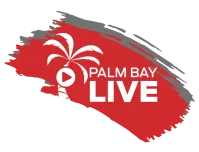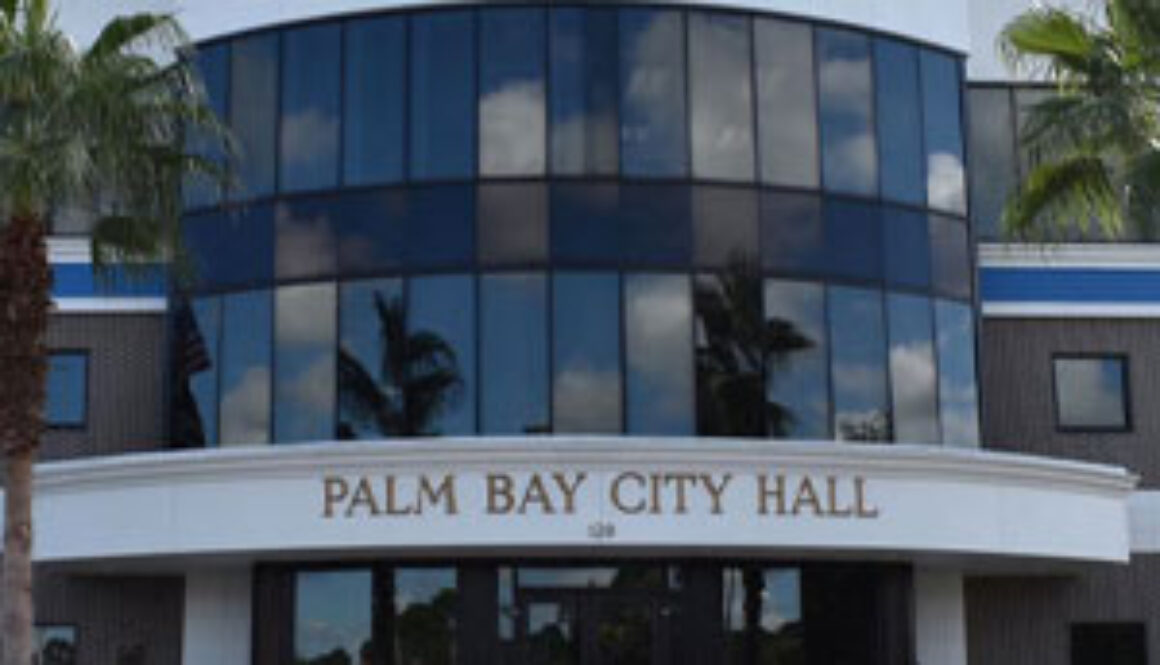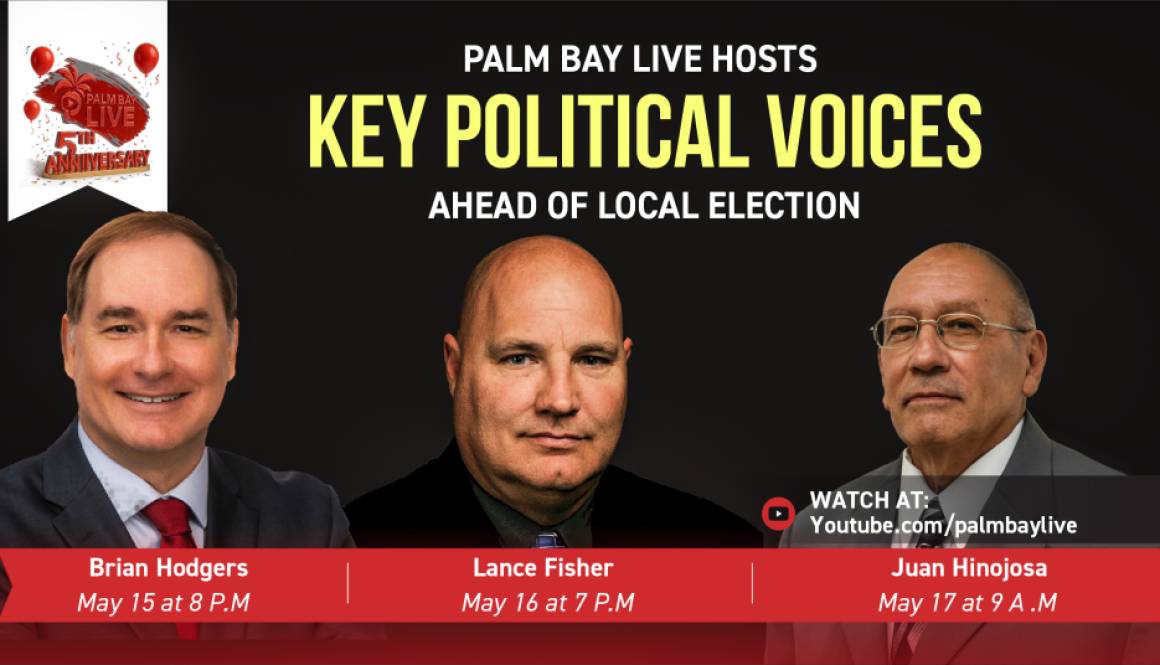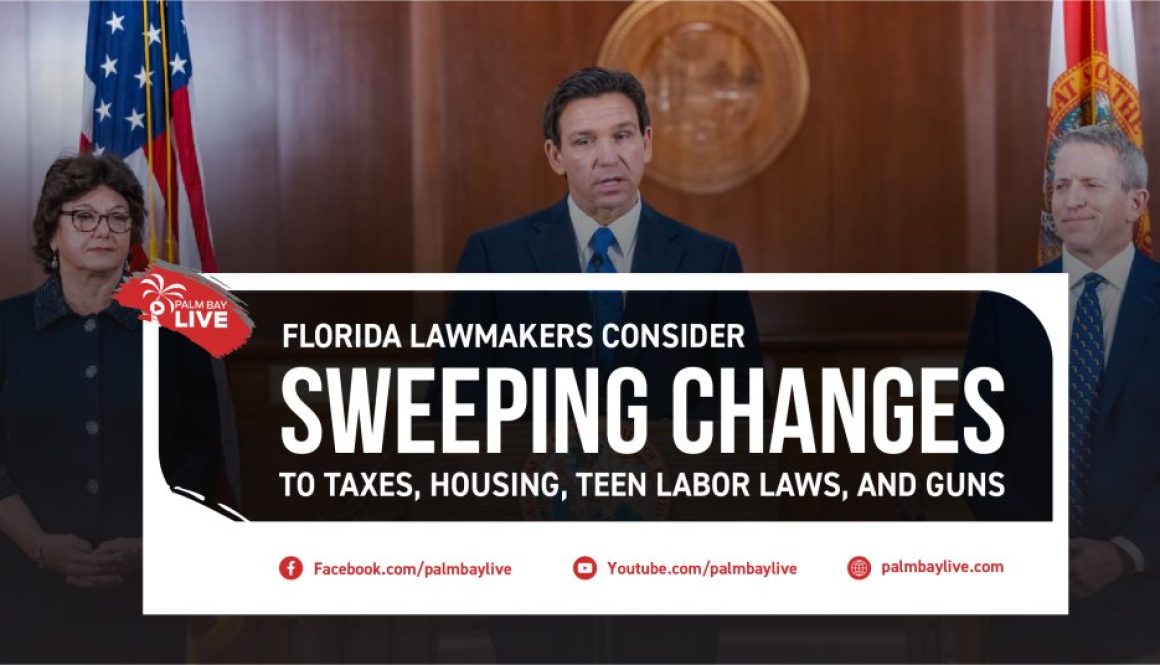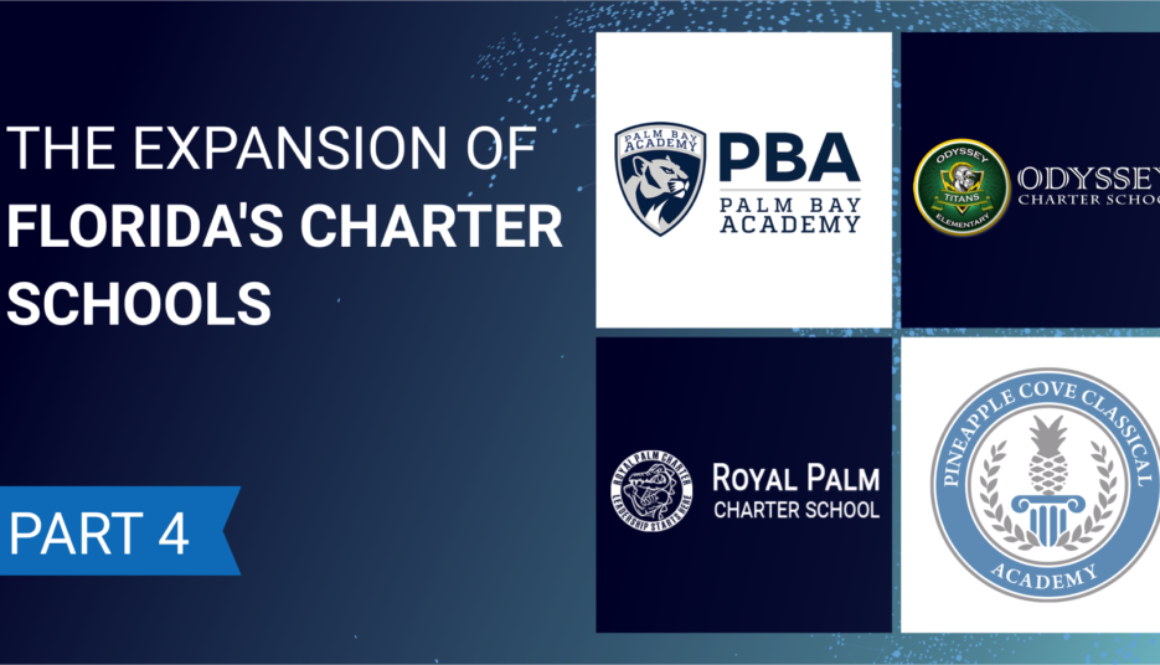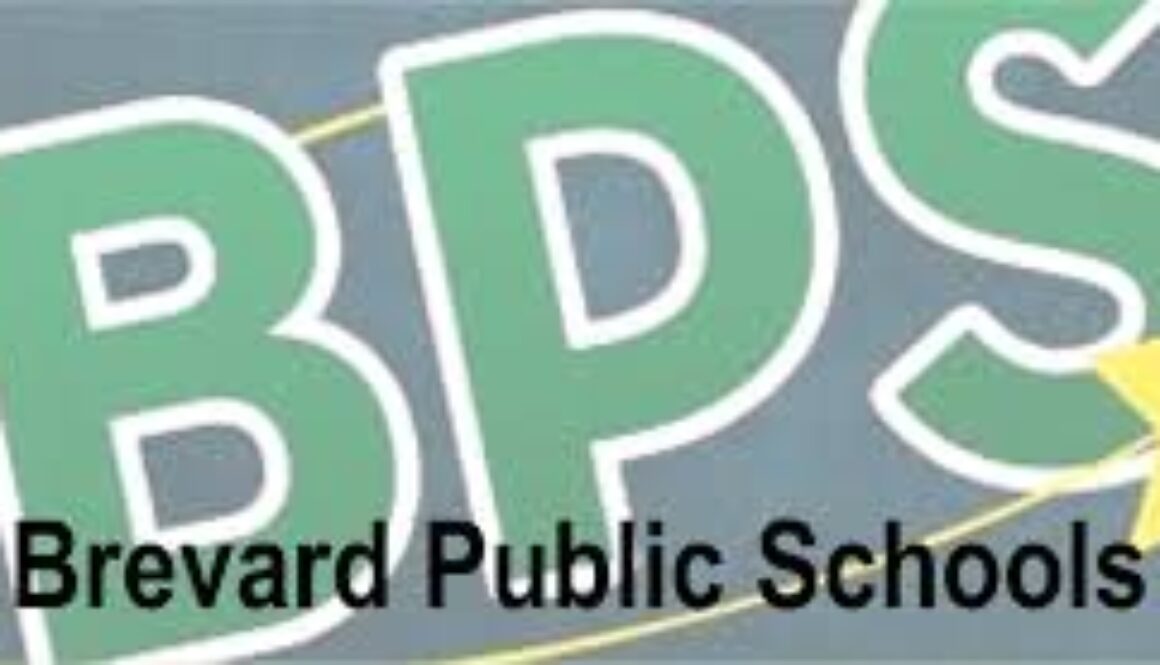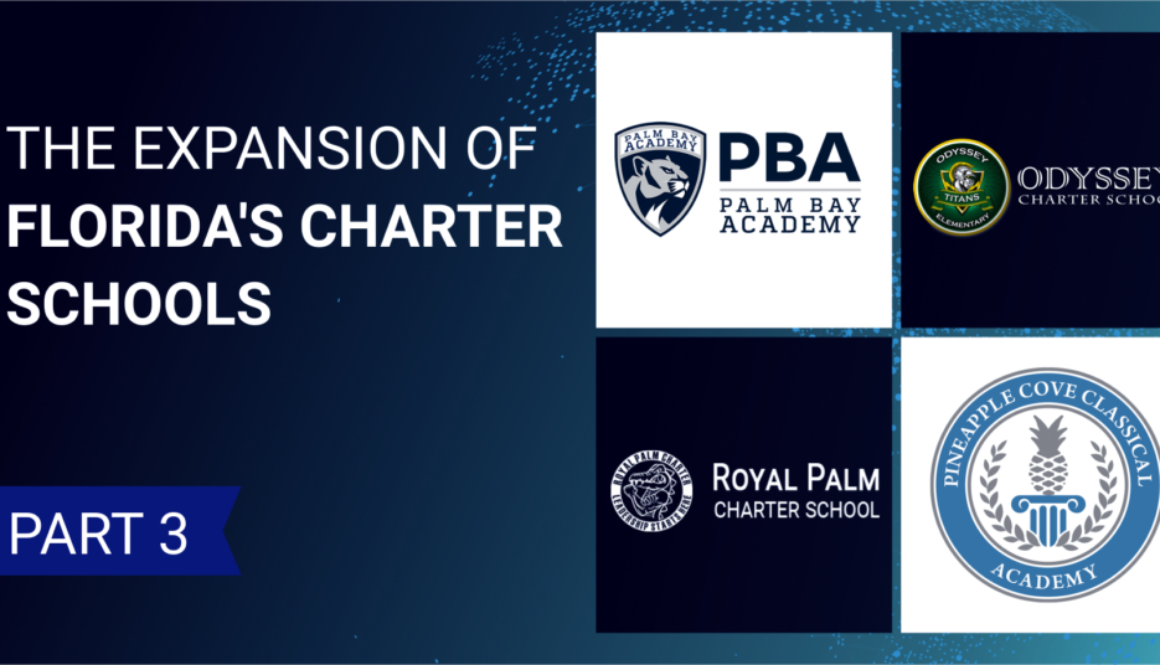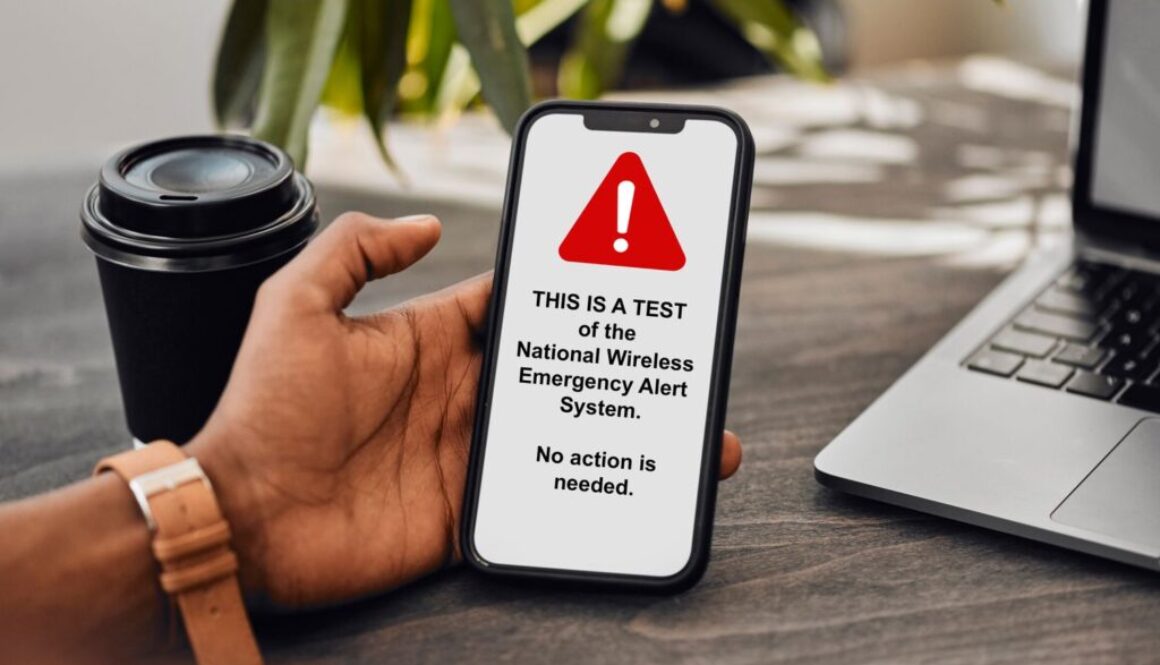This article is the last installment of a four-part series of charter schools by Palm Bay Live.
Charter Schools in Brevard County: Funding and Oversight
According to Russell Bruhn, Chief Strategic Communications Officer for Brevard Public Schools, charter schools in Brevard County are financed through a combination of state, local, and federal funds, similar to other public schools. The primary source of funding is the Florida Education Finance Program (FEFP), which allocates funds based on the number of full-time enrolled students. Additionally, charter schools have the opportunity to enhance their funding through federal grants. One notable example is the Charter School Program Grant, which supports the planning and initial implementation of charter schools.
“Each charter school has a unique blend of federal, state, and local funding, depending on the specific grants they are able to secure and the number of students they serve,” explained Bruhn.
In terms of oversight, Brevard County maintains rigorous accountability measures to ensure that charter schools meet both financial and academic standards. “All charter schools in the district are required to submit monthly or quarterly financial reports, depending on whether they have achieved high-performing status,” Bruhn stated. Moreover, the district actively monitors these schools to ensure they comply with state statutes covering all aspects of their operations.
Financial transparency is critical in the oversight process. Charter schools must submit an annual audit to the district, which is then made available to the public on each school’s website. This process ensures that stakeholders, including parents and community members, have access to detailed financial information about the schools.
Billy Prasad, Deputy Director of Brevard County Planning and Development, elaborates on the zoning and land development aspects of charter schools. “From a zoning standpoint, charter schools are treated similarly to other public schools, with certain exceptions. For example, specific provisions in our Code of Ordinances allow the Board of County Commissioners to direct educational facility impact fees toward the construction of charter school facilities,” Prasad notes. Additionally, the Public School Facilities Element of the Comprehensive Plan includes policies that facilitate the use of charter schools as mitigation options to address school capacity issues.
Over the past decade, two charter schools in Brevard County have closed due to financial instability and insufficient academic performance. “When a charter school closes, any remaining public funds, as well as property and equipment purchased with those funds, are returned to the district school board,” Bruhn clarified. This policy helps safeguard public investments and ensures that resources are redistributed to other public schools within the district.
The location of charter schools is also regulated to ensure they meet community needs and educational standards. Prospective charter schools must apply through a state-mandated process, which includes a thorough review of their proposed location as part of a comprehensive assessment by the district. “The review process is designed to evaluate how well the proposed site will serve the community and support the school’s educational goals,” said Bruhn.
Management and Locations of Charter Schools in Brevard County
In the world of charter schools, management fees are a common expense. These fees are often paid to organizations that handle administrative, curriculum development, and operational tasks for the schools. They can vary widely depending on the size of the school, the scope of services provided, and the specific contractual agreements in place.
For instance, in Brevard County, the disparity in management fees among different charter schools is quite noticeable. According to 2021 IRS Form 990 submissions, Palm Bay Academy reported management fees of $29,567. In contrast, Odyssey Charter School paid significantly higher fees amounting to nearly $1.7 million. Meanwhile, Emma Jewel Charter School incurred $93,000 in management fees. These figures highlight the varying scale and administrative needs of each school.
The implications of such management fees are multifaceted. While these fees support the operational efficiency of charter schools, they also raise questions about financial priorities and the allocation of public education funds. High management fees, as seen with Odyssey, suggest a substantial investment in specialized services, which could indicate a focus on enhancing educational quality or administrative depth. However, it also prompts scrutiny regarding the cost-effectiveness of outsourcing school management functions and the impact on budget allocations for direct educational activities.
In Brevard County, the guidelines regarding the placement of charter schools are notably flexible, emphasizing the adaptability of educational services to community needs. Dr. Melinda Maier, Director of Curriculum & Instruction at Brevard Public Schools, shared insights into the process. “As far as the charter office is concerned, there are no regulations that impact the location of charter schools within the county,” Dr. Maier explained. She noted that applicants for new charter schools may not specify a location initially. “When a potential charter school applies, they may not even know the location at which they would be housed,” she added.
If an applying charter has a proposed location, the county considers the strategic need for a school in that area. Dr. Maier emphasized the focus on community requirements: “If they do have a location, we do take into account if the area is in need of a charter school.”
Brevard County Charter Schools Controversies
Charter schools are mandated to employ certified teachers, in accordance with statutory requirements. Teachers working in or contracted by charter schools must hold the appropriate certifications as stipulated by current legislation. Recently, however, controversies have come to light regarding charter school personnel. Not only was a new principal, previously arrested in 2010 for stealing prescription drugs from teachers, selected for leadership, but also a teacher arrested in January 2023 for domestic violence was named “Teacher of the Year.” Furthermore, the only assistant principal who was set to return for this school year at Odyssey Charter Jr/Sr High was placed on probation last year for his previous actions of violently restraining students by using his forearm across their throats during his tenure at Palm Bay High.
These incidents not only raise questions about the vetting and selection process for staff within charter schools but also about the standards for advancing individuals to leadership positions. Odyssey Charter seems to be a haven for individuals with criminal histories, academic shortcomings, and various professional reprimands, often advancing them to higher roles. This pattern of behavior raises concerns not just about the qualifications of the staff but also about the financial priorities of the school. Notably, in 2021, Odyssey Charter reported spending over $1.6 million in management and $91,000 in legal fees, as detailed in their IRS Form 990.
According to the Brevard Public Schools senior communications coordinator, there are 15 charter schools in Brevard County, 6 of which are located in Palm Bay. Despite Brevard Public Schools maintaining a “B” rating in the latest report card issued by the Florida Department of Education, an analysis of school performance reveals a noteworthy disparity in excellence. While only Education Horizons Charter School achieved an “A” rating, 21 public elementary schools, including Pinewood, Atlantis, and South Lake, secured top marks.
Brevard County Charter Schools and Public Opinion
To gauge public opinion more directly, Palm Bay Live conducted a Facebook poll that garnered responses from 592 participants. Thirty-four percent expressed a preference for charter schools, below the 51% who favored public schools. Additionally, alternative options also had their share of support: 4% chose ‘none of the above,’ 2% leaned towards parochial schools, and 9% preferred homeschooling.
Commenters voiced their reasons for their choices, touching on a variety of critical issues. One prevalent theme was concern over the long-term impacts of shifting public funds to charter, private, and religious schools. This reallocation, some argued, has contributed to the dwindling quality of public education, a trend exacerbated by political decisions favoring charter schools over traditional public ones. One community member noted, “That is what is wrong with charter schools—they take from the public schools’ funds.”
Other community members voiced frustration over what they perceive as more lenient regulations governing charter schools, particularly regarding student discipline. For example, a local remarked on charter schools’ ability to expel students for misconduct, adding, “Public schools aren’t given that luxury.”
Yet, others argued for the benefits of parental choice and the tailored educational approaches that charter schools can offer, suggesting that for some students, these institutions provide a better fit than their public counterparts. One community member stated, “Personally, it’s about parental choice [and] the best school that meets the needs of the student.”
Moreover, commenters debated the accountability and oversight of charter schools, with some pointing out the lack of stringent standards that public schools are subject to. This raised alarms about the potential for fiscal mismanagement and educational inconsistency within the charter system. Yet, others argued for the benefits of parental choice and the tailored educational approaches that charter schools can offer, suggesting that for some students, these institutions provide a better fit than their public counterparts.
Echoing through the comments was a call for a balanced perspective on school choice, recognizing the value in both charter and public schools while advocating for reforms that ensure quality education across the board. The conversation also touched on the comparative performance of charter versus public schools in Brevard County, citing statistics to support various viewpoints on which system offers superior education.
